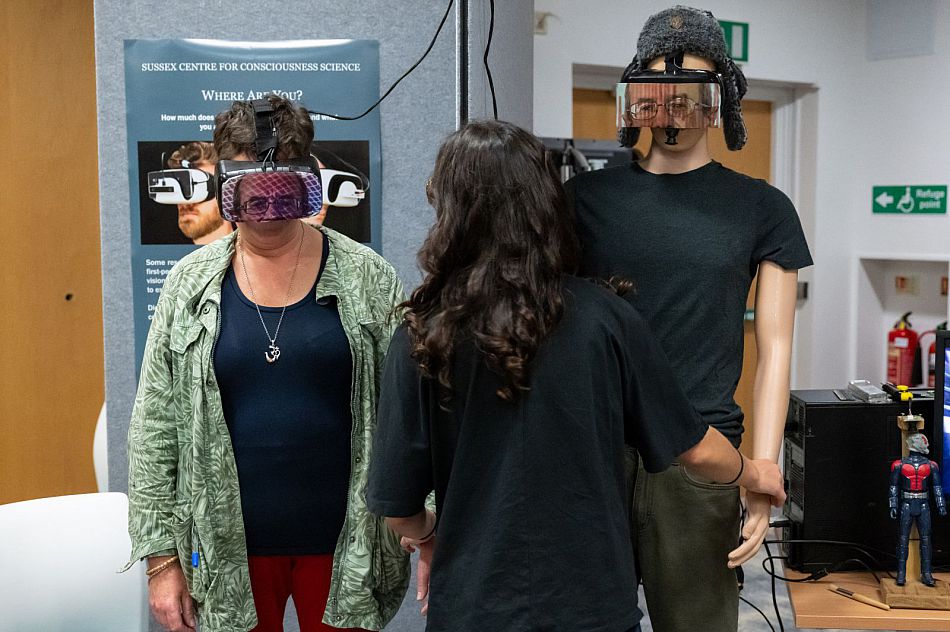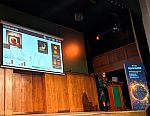Public engagement
Sharing our research beyond academia is an important priority for our group. You can catch up with our latest appearances here.
 Image credit: Stuart Robinson 2024
Image credit: Stuart Robinson 2024- Prof Anil Seth ponders the meaning of life
- Prof Anil Seth on Radio 4's "Sideways"
- Prof Anil Seth with Philomena Cunk
- Dr Adam Barrett: Scientific Spirituality and Psychedelics
- Prof Anil Seth: Consciousness in humans and other things
- Prof Zoltan Dienes: Believed-in imaginings & Dr Jenny Bosten: Colour vision and individual experience
- Dr Maxine Sherman: The brain basis of time perception
- Dr Adam Barrett: A spirituality built on science
- Prof Andy Clark: What is consciousness?
- Prof Anil Seth: "Being You - A New Science of Consciousness"
- Dr Maxine Sherman: The AI Revolution; what it means for work and wellbeing
- Dreamachine and the Perception Census
- Prof Andy Clark: Extended you
- Dr Maxine Sherman & Dr Warrick Roseboom: Why does time fly when you're having fun?
- Prof Anil Seth: Your brain hallucinates your conscious reality
- From Body to Being (2017 British Science Festival)
- Prof Anil Seth answers neuroscience questions for Wired
